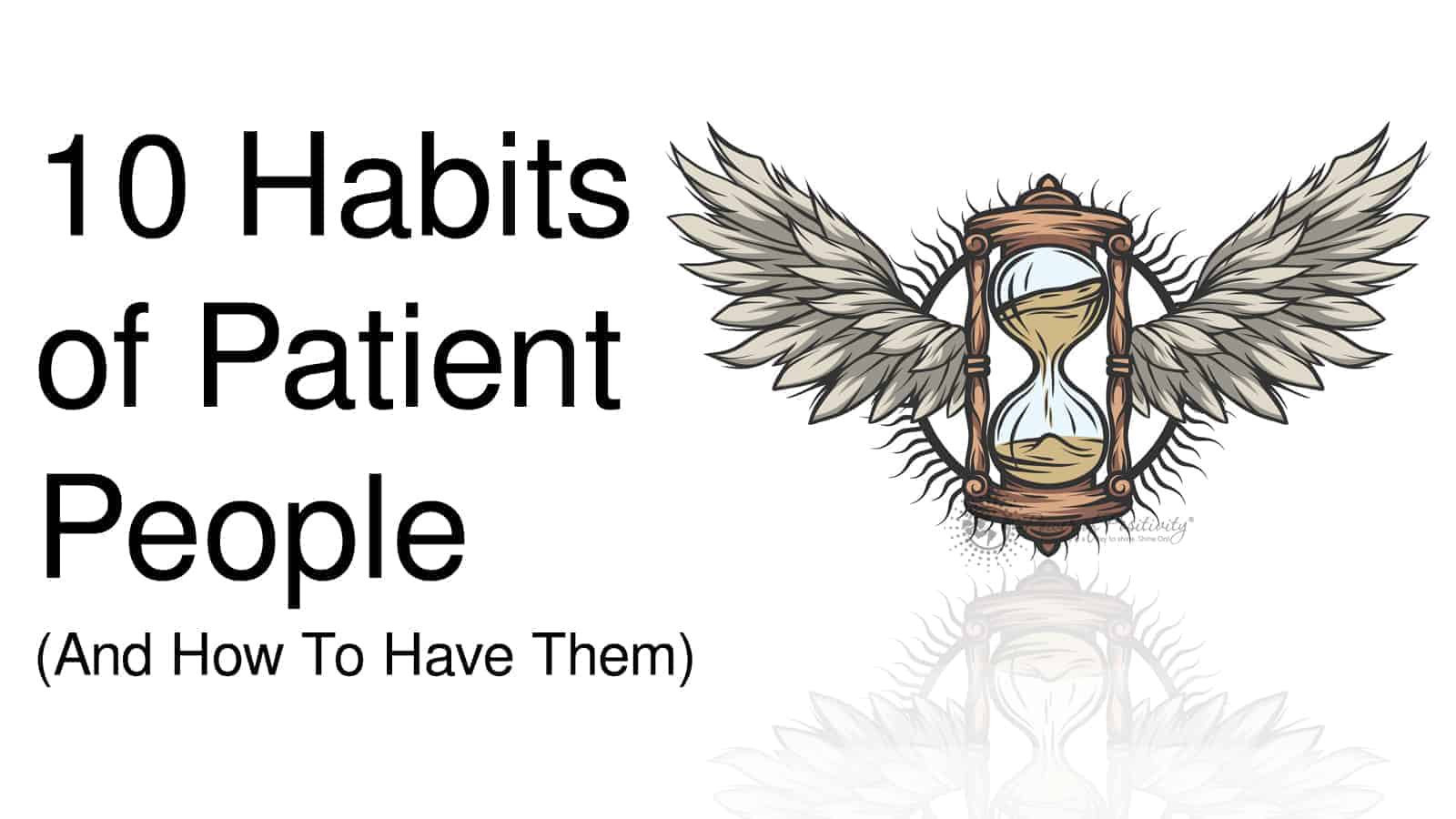Being a patient person takes years of building habits to stay strong in the face of frustration. Although we say patience is a virtue, we also think that not having any is a problem. Blowing up in anger when things don’t go our way is a problem with anger management that can lead to violent behavior.
In this article, we will look at 10 habits that we can learn from patient people and how to have more patience in our lives.
10 Habits Of Patient People (And How To Have Them)
Patience is something that can be learned, although it takes time and effort. Patience is our ability to take as long as is needed to cope calmly and rationally with our thoughts and emotions before we speak or act.
1. Know your patience level
Researchers in The Journal of Positive Psychology studied patience. They identified three types of patience; interpersonal, life hardship, and daily hassles patience.
You may be the type of person who becomes easily frustrated when you are delayed, Your awareness of your sensitivity to time delays is important to identify situations where you might lose patience so you can work to prevent it.
2. Work at it
The same researchers from the above study in The Journal of Positive Psychology tried to see if a training program could improve levels of patience. They found that if participants took part in a training program designed to increase patience, they could increase patience and also improve mood. Their patience-training program also led to decreased depression and increased positive mood.
Even if you don’t have a therapist to help you reduce feelings of anger and frustration, work on this as a personal goal yourself. Tell yourself that you are in control of your emotions, and that you will wait before you decide how to respond.
3. Waiting just a few seconds makes you smarter
Delaying our immediate response can be trained. Delayed gratification is the opposite of immediate gratification. In other words, do you wait to get rewarded, or do you want it right now?
People who learn to choose to delay gratification early in life are more likely to be better able to cope with stress and frustration later on and also have better brain function than those who do not have this habit of patient people.
Researchers studied preschool children’s ability to wait a few seconds before getting a reward and found that the number of seconds that they could wait correlated with their cognitive ability, school performance, lower stress levels and abilities to cope with frustration as teenagers.
4. Remove temptation
If you are working on losing weight but there are cookies in the house, you are faced with the question of whether you have the right habit to be patient and wait for the future reward of being thinner or the immediate reward of eating a cookie. It’s hard to win the patient fight between the future better you versus the you who could be at least temporarily happy now. Get rid of the temptation.
5. Count to two
Counting to ten is no longer needed, in fact, your initial gut response of anger/frustration usually only lasts about two seconds. If you can hold your tongue for that long, you are less likely to erupt at another person.
6. Keep track
How many times a day do you find that you are not practicing patient habits? What time of day are you more likely to loose your patience? What are you doing when you lose your patience?
If you can identify the answers to these questions, you will know your common triggers. Knowing when you might loose it is one effective habit of patient people.
7. Prepare to lose your patience
Practice makes perfect so, imagine that you are in a stressful situation where you are likely to not be the best at having patience. Now imagine how the most confident, calm, collected person would handle that situation. Now act like the person you just imagined. Fake it ’til you make it is just fine as a habit of patient people.
8. Use humor
Joy is always the positive emotion we should try to choose over anger, fear, resentment, envy, or sadness. If you can do so in a self-deprecating way (at the expense of your own pride) make a lighthearted joke about the stressful situation to change your mood quickly and re-frame the stressful situation as an adventure.
9. Be patient like a girl
Researchers in the journal Sex Roles have found that women and girls are better able than men and boys to delay gratification. The science is unclear on why this difference exists, but it may be that women may get more training as girls to learn to resist impulses and this can account for the gender differences in patient people.
10. Deep breathing
Shallow breathing is what we do when we pant like a dog on a hot day. Full, deep breaths that fill our lungs are excellent cleansers for negative moods. Breathe in patience, exhale frustration.















 Community
Community

